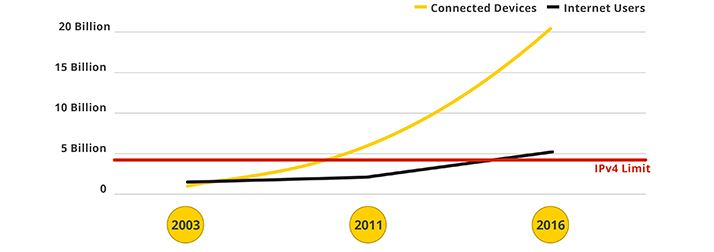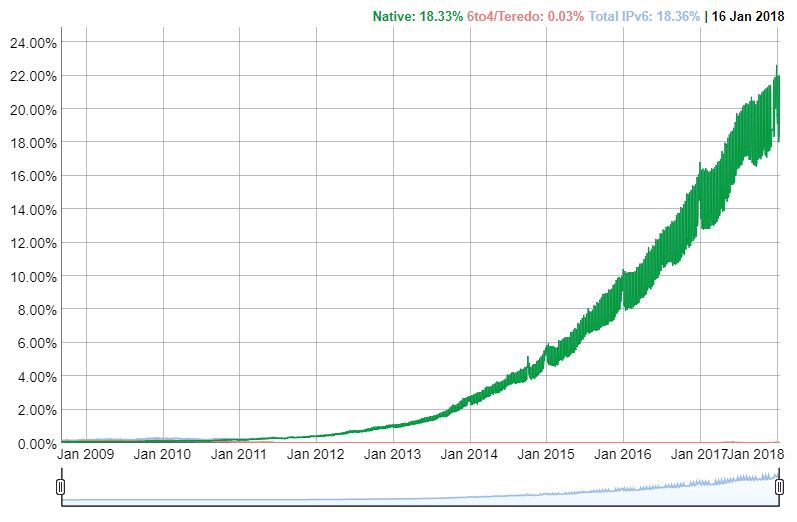IPv4 vs IPv6 a Complete Guide
IP vs. Gigabit - Related Articles

Which is better IPv4 or IPv6? What's the difference between them?? Let's see:
IPv4 is the most widely deployed Internet protocol used to connect devices to the Internet.
It uses a 32-bit address scheme allowing for a total of 2^32 addresses (just over 4 billion addresses). In the tremendous growth of internet the devices connected to internet is increasing on daily basis! This makes the addresses run out eventually.
Hence forth a new and advanced addressing system was developed and deployed to overcome the outrun which is IPv6 an coexists with IPv4 for some time...

Fig: IPv4 vs Ipv6 address limitations
IPv6 (Internet Protocol Version 6) is also called IPng (Internet Protocol next generation)
There are some major differences between the two:
|
|
IPv4 |
IPv6 |
|
Address Size |
32 bit |
128 bit |
|
Format |
Decimal notation |
Hexadecimal notation |
|
Prefix (example) |
192.149.0.0/24 |
3FFE:F200:0234::/48 |
|
Number of Addresses |
2^32 |
2^128 |
|
Packet Size |
576 bytes |
1280 bytes |
|
Address mask |
Used to designate network from host portion. |
Not used |
|
Address types |
Unicast address, multicast address, and broadcast address |
Unicast address, multicast address, and Anycast address |
|
Address Configuration |
DHCP or manual config |
DHCPv6/SLAAC(Stateless address auto configuration) |
|
IP header |
Variable length of 20-60 bytes, depending on IP options present. |
Fixed length of 40 bytes.. |
|
Ports |
TCP and UDP have separate port spaces, each identified by port numbers in the range 1-65535. |
For IPv6, ports work the same as IPv4. Because these are in a new address family, there are now four separate port spaces. For example, there are two TCP port 80 spaces to which an application can bind, one in AF_INET and one in AF_INET6. |
Other IPv6 advantages over IPv4:
Risks:
Source:
https://www.networkworld.com/article/2171504/tech-primers/biggest-risks-in-ipv6-security-today.html
Growth:

Fig: Growth of IPv6 from its development
Source: https://www.google.com/intl/en/ipv6/statistics.html
Interesting Facts about IPv6:
Related Links of Sources and Articles Referred:
http://study-ccna.com/osi-tcp-ip-models/
https://photonics.gsfc.nasa.gov/tva/photonics/HiDataRate/gigaether.htm
https://www.cnet.com/how-to/how-to-pick-the-right-cables-for-your-home-network/
https://www.cnet.com/how-to/how-to-pick-the-right-cables-for-your-home-network/
https://www.techrepublic.com/blog/10-things/10-things-you-should-know-about-ipv6-addressing/


